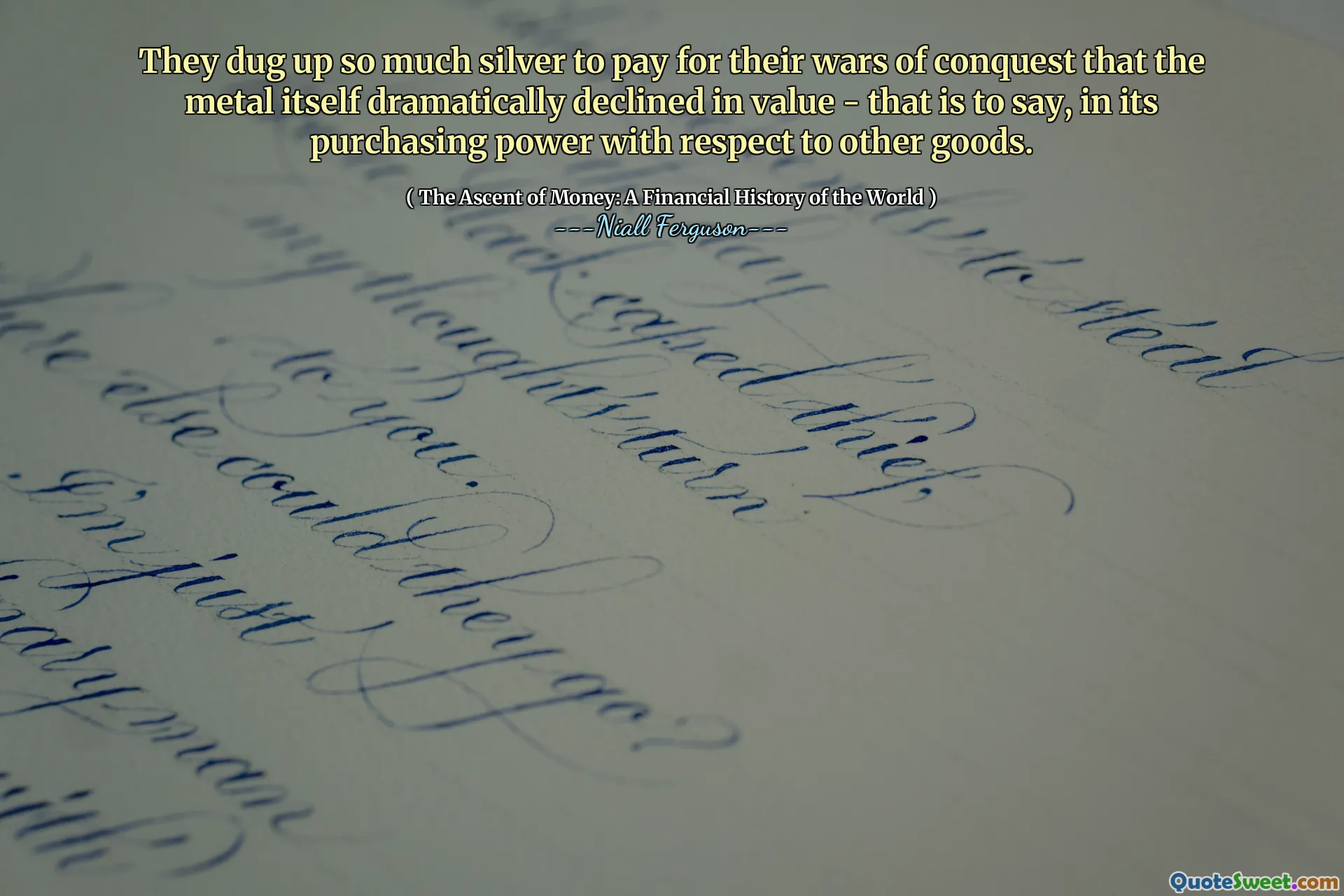
They dug up so much silver to pay for their wars of conquest that the metal itself dramatically declined in value - that is to say, in its purchasing power with respect to other goods.
Niall Ferguson's book, "The Ascent of Money: A Financial History of the World," discusses the economic consequences of extensive silver mining undertaken to finance wars of conquest. The extensive extraction of silver resulted in an oversupply of the metal, leading to a significant decrease in its value. The relationship between the available silver and its purchasing power showed that, while the metal was plentiful, it could buy less in terms of goods and services due to inflationary pressures.
This historical context illustrates how the frenzy for acquiring resources for military purposes can distort economies. The depletion of silver not only impacted its intrinsic worth but also reflected broader economic principles, where abundance can lead to value depreciation. Ferguson’s exploration sheds light on the interconnectedness of warfare, resource acquisition, and the fluctuations of currency value throughout history.











